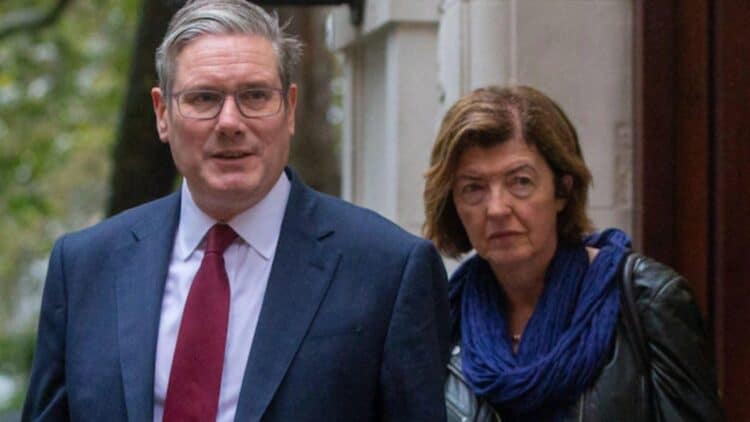Sue Gray, former senior civil servant and now chief of staff to Labour leader Sir Keir Starmer, has been revealed to be earning a salary higher than the prime minister. Gray, whose report into Downing Street parties during the pandemic played a key role in Boris Johnson’s downfall, joined Labour earlier this year ahead of the upcoming general election. Her new position has not only sparked political interest but also raised eyebrows over her substantial pay packet.
Gray is reportedly earning £170,000 a year in her new role, a sum that surpasses the prime minister’s annual salary of £167,000 by £3,000. This figure has caused some stir, as Labour had initially offered her a lower salary to avoid attracting media attention. However, Gray is said to have declined the reduced offer, accepting the higher pay despite the potential controversy.
Salary Controversy
The revelation of Gray’s salary has drawn comparisons to her Conservative predecessor, Liam Booth-Smith, who served as chief of staff to Rishi Sunak before becoming Lord Booth-Smith. Booth-Smith was paid between £140,000 and £145,000 per year, making Gray’s £170,000 salary notably higher. This increase in pay is tied to a rebanding of salaries for special advisers, introduced shortly after Sunak took office. The government has stressed that the rebanding was carried out by officials and not influenced by Gray herself.
Despite not earning the highest salary within the newly adjusted pay bands for special advisers, Gray’s pay has still made her the subject of much discussion within political circles. Some have questioned the optics of such a high salary during a cost-of-living crisis, while others within Labour are unbothered by the figure, seeing her appointment as a valuable asset.
Labour’s Strategic Move
Sue Gray’s appointment is viewed by many as a strategic move by Labour, one that enhances its credibility. As a former senior civil servant with a reputation for impartiality and thoroughness, Gray is seen as an experienced hand capable of guiding Labour’s top team in the lead-up to the next election. Her report into “Partygate” during Boris Johnson’s premiership demonstrated her ability to hold the highest levels of government to account, a skill that Labour hopes to leverage as they position themselves as a government-in-waiting.
Her salary reflects the importance Labour has placed on her role in the party, but it also opens up Labour to criticism from their political opponents, particularly given the challenges many Britons are facing financially.
Humorous Quips and Political Jabs
Not surprisingly, Gray’s pay has become a topic of light-hearted banter within Labour’s ranks. According to journalist Gabriel Pogrund, one senior Labour figure joked that Gray is “the only pensioner better off under Labour.” This quip comes amid the backdrop of Labour’s recent policy decisions, which include cuts to fuel allowances for pensioners, drawing attention to the disparity between Gray’s financial position and the millions of other pensioners across the country.
While this humorous comment may not have been intended as a critique, it has nonetheless highlighted the scrutiny Labour faces over Gray’s salary, particularly given their broader economic policies. Critics within the Conservative Party are likely to seize upon this, framing Labour as out of touch with ordinary voters.
A Long-standing Career in Public Service
Sue Gray’s career in the public sector has spanned decades. She was previously Director General of Propriety and Ethics in the Cabinet Office and later moved to Northern Ireland to serve as Permanent Secretary for the Department of Finance. However, it was her investigation into the Downing Street parties during the COVID-19 lockdown that thrust her into the national spotlight. Her findings were pivotal in the eventual resignation of Boris Johnson as prime minister, and her reputation as a formidable and principled civil servant was solidified in the eyes of many.
You may also like: Populist radical right penetrates mainstream politics, claims new study







